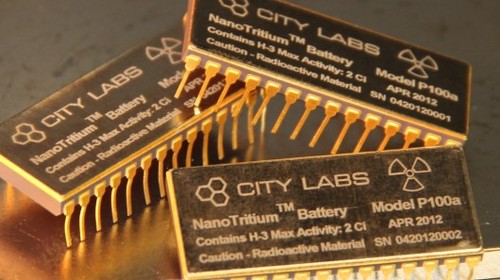Betavoltaic Power Source Prolongs The Life Of Microelectronics By 20 Years

It might cause considerable inconvenience to change a battery cell, if you install micro-electronic devices in hard-to-get-to or dangerous places. Toronto’s City Labs will soon launch commercial production of its NanoTritium betavoltaic power source, a thumb-sized battery that draws on the energy released from its radioactive element to provide continuous nanoWatt power for over 20 years. With a half-life of 12.3 years, tritium is considered a relatively benign betavoltaic, providing a continuous flow of low-powered electrons for a good many years. The Model P100a NanoTritium betavoltaic power source is robust and hermetically sealed, the tritium is incorporated in solid form. The battery is claimed to be capable of providing energy to low-power micro-electronic and sensor applications for over 20 years. This innovative technology can be applied to environmental pressure/temperature sensors, intelligence sensors, medical implants, trickle charging lithium batteries, semi-passive and active RFID tags, deep space probes, silicon clocks, SRAM memory backup, deep-sea oil well electronics, and lower power processors.
The P100a will retail at about US$1,000s.
Via:gizmag.com
| Tweet |











